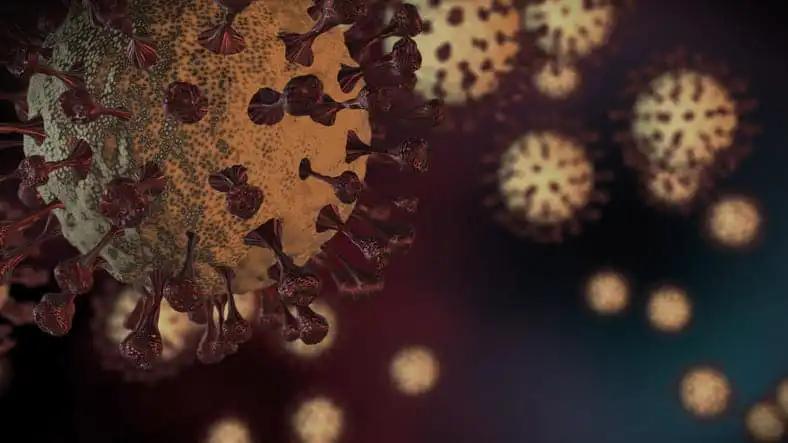KEY TAKEAWAYS
- The Phase 1 and 2 CARBON study assessed the safety and effectiveness of CTX110 in patients with R/R LBCL who had undergone at least two prior lines of treatment.
- The study’s primary endpoints were safety and overall response rate (ORR).
- Patients receiving≥300 x 106 CAR T cell doses demonstrated substantial ORR and CR rates, with sustained remissions.
Compared to autologous (auto) CAR T products, Allogeneic (allo) CAR T cell therapies could benefit patients (pts) with Relapsed or Refractory Large B-Cell Lymphoma (R/R LBCL) encompassing “off-the-shelf” availability, no leukapheresis, enhanced safety, and the potential for added infusions. CTX110® is an experimental CAR T cell therapy directed against allo CD19, created through CRISPR/Cas9 editing and utilized to turn off the natural expression of the T-cell receptor (TCR) alpha constant (TRAC) locus, prevent TCR expression and β2-microglobulin gene from destroying major histocompatibility complex (MHC) class I expression.
The phase 1 CARBON study investigated the safety and effectiveness of CTX110 in adult pts with relapsed or refractory R/R LBCL with ≥2 prior lines of treatment. Patients underwent lymphodepleting chemotherapy (LDC) involving a three-day administration of fludarabine at 30mg/m2 and cyclophosphamide at 500mg/m2, followed by CTX110. The administered doses of CTX110, ranging from 300 x 106 to 600 x 106 CAR+ T cells, were clinically active. In cases where pts initially experienced benefit but later encountered disease progression, an additional infusion of CTX110 preceded by LDC. Furthermore, four pts who demonstrated an initial response of stable disease (SD) on Day 28 received a planned second infusion on Day 35. The primary objectives encompassed evaluating safety and determining the overall response rate (ORR) according to the Lugano 2014 Criteria. Secondary endpoints included assessing the rate of complete responses (CR), the duration of response (DOR), and overall survival (OS).
Until August 19, 2022, 34 pts with LBCL were registered for dose escalation, and 32 individuals received CTX110. The median duration from enrollment to LDC was two days. Among the pts who were administered at least one dose of CTX110 at doses of ≥300 x 106 CAR T cells (DL ≥3; N=27), the best ORR) and CR rates were observed in 18/27 pts (67%) and 11/27 (41%), respectively. The six-month CR rate stood at 19% (5/27); three patients have sustained a complete response for over 24 months. In the subset of 13 pts who received a second infusion of CAR T cells ≥300×106, all pts exhibited expansion of CAR T cells. No instances of graft versus host disease (GvHD) or infusion reactions were recorded following the CTX110. Any grade Cytokine release syndrome (CRS) was documented in 18/32 pts (56%), with no cases of CRS exceeding grade 3. Reports of immune effector cell-associated neurotoxicity syndrome (ICANS) of any grade were found in 3/32 pts (9.4%), including 2 cases of grade 3 severity. Severe grade 3 or higher infections were identified in 4/32 pts (12.5%), with one patient dying due to HHV6 encephalitis. Seven pts encountered extreme adverse events that were attributed to CTX110. There was no observable escalation in toxicity with the re-administration of CTX110.
CTX110 at DL≥3 or greater led to substantial and clinically significant ORR, CR, resulting in sustained remissions while maintaining a favorable safety profile in pts with R/R LBCL. Notably, half of the pts who achieved a CR sustained it for at least six months. With a median time of only two days from enrollment to lymphodepleting chemotherapy (LDC), CTX110 presents a promising off-the-shelf treatment option. The re-administration of CTX110 was well-tolerated and demonstrated additional clinical advantages. The evaluation of CTX110 will continue in the study’s expansion phase.
Source: https://ebmt2023.abstractserver.com/program/#/details/presentations/1715
Clinical Trial: https://classic.clinicaltrials.gov/ct2/show/NCT04035434
McGuirk, J.P., Tam, C.S., Kröger, N., Riedell, P., Murthy, H.S., Ho, J., Maakaron, J., Waller, E.K., Awan, F.T., Shaughnessy, P.J., Ghobadi, A., Bishop, M.R., Piérola, A.A., Dickinson, M., Geethakumari, P.R., Ross, A., Stevens, W., Xu, H., Ma, A., Cohen, S.B., Maziarz, R.T., Bachier, C.



